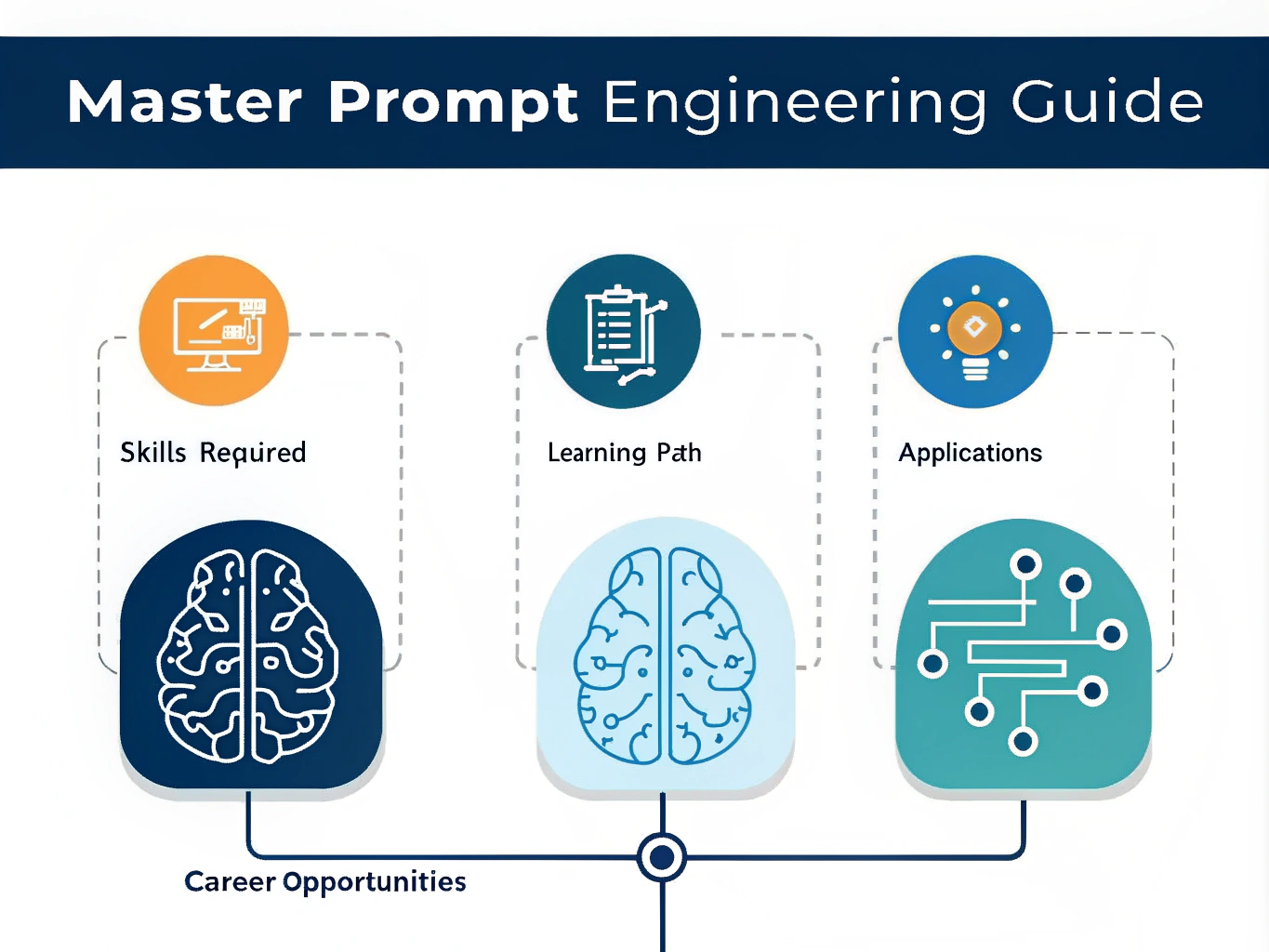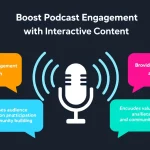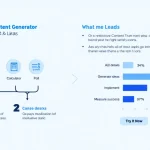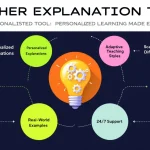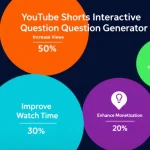Prompt Engineering Guide Generator
Generating your guide...
Is this tool helpful?
How to Use the Prompt Engineering Guide Generator Effectively
To make the most of our Prompt Engineering Guide Generator, follow these simple steps:
- Specific Focus (Optional): Enter a particular area of prompt engineering you’d like to concentrate on. For example, you might input “AI-assisted content creation” or “Conversational AI for customer support.”
- Target Audience Experience Level: Select the experience level of your intended audience from the dropdown menu. Choose between “Beginner,” “Intermediate,” or “Advanced.”
- Preferred Guide Format (Optional): Pick your desired format for the guide. Options include “Step-by-step,” “FAQ,” or “Narrative.”
- Include Practical Examples: Decide whether you want the guide to include practical examples by selecting “Yes” or “No.”
- Generate Guide: Click the “Generate Prompt Engineering Guide” button to create your customized guide.
Once generated, you can view the guide in the result section and copy it to your clipboard using the “Copy to Clipboard” button.
Unlocking the Power of Prompt Engineering: Your Gateway to AI Mastery
Welcome to our Prompt Engineering Guide Generator, a cutting-edge tool designed to empower aspiring and seasoned AI enthusiasts alike in mastering the art of prompt engineering. This innovative calculator is your personal mentor in navigating the complex world of natural language processing and AI-driven content creation.
What is Prompt Engineering?
Prompt engineering is the sophisticated practice of crafting and refining input prompts to elicit desired outputs from large language models (LLMs) and other AI systems. It’s a crucial skill in the AI toolkit, blending creativity, technical knowledge, and strategic thinking to optimize AI performance across various applications.
The Purpose of Our Guide Generator
Our Prompt Engineering Guide Generator serves as a dynamic, personalized learning resource. It creates tailored guides that cater to your specific interests and experience level in the field of prompt engineering. Whether you’re a novice looking to grasp the basics or an expert seeking advanced techniques, this tool adapts to your needs, providing relevant, actionable insights.
Benefits of Using the Prompt Engineering Guide Generator
1. Personalized Learning Experience
By allowing you to specify your focus area and experience level, the generator ensures that the content is perfectly aligned with your learning objectives. This personalization accelerates your learning curve and makes the information immediately applicable to your goals.
2. Comprehensive Coverage
Each generated guide covers a wide range of topics essential to prompt engineering, including:
- Fundamental concepts and definitions
- Required skills and qualifications
- Industry-standard tools and technologies
- Best practices for prompt design and iteration
- Career development pathways
- Valuable resources and community connections
- Emerging trends and future directions
3. Flexible Learning Formats
The option to choose your preferred guide format (step-by-step, FAQ, or narrative) caters to different learning styles, enhancing information retention and understanding.
4. Practical Application
With the option to include practical examples, the guide bridges the gap between theory and practice, providing you with tangible ways to apply your newfound knowledge.
5. Time-Efficient Skill Acquisition
By consolidating relevant information into a single, tailored guide, this tool significantly reduces the time and effort required to gather and synthesize information from multiple sources.
Addressing User Needs: How Our Guide Generator Solves Specific Problems
Overcoming Information Overload
The field of AI and prompt engineering is rapidly evolving, with new techniques and applications emerging constantly. Our guide generator cuts through the noise, presenting you with the most relevant and up-to-date information tailored to your specific needs.
Bridging the Skills Gap
For those new to prompt engineering or looking to expand their skills, the learning curve can be steep. Our generator creates a clear pathway for skill development, breaking down complex concepts into digestible segments and providing a structured approach to mastering prompt engineering techniques.
Enhancing AI Performance
By providing best practices and expert insights, the generated guides help users optimize their prompt engineering skills, leading to improved AI performance across various applications. This translates to more accurate, relevant, and useful AI outputs in real-world scenarios.
Career Advancement
For professionals looking to advance their careers in AI and machine learning, our guide generator offers valuable insights into industry trends, required skills, and potential career paths. This information is crucial for strategic career planning and professional development.
Practical Applications and Use Cases
Scenario 1: AI Chatbot Development
Let’s say you’re a software developer tasked with creating an AI-powered customer service chatbot. You might use our guide generator as follows:
- Specific Focus: “Conversational AI for customer support”
- Target Audience Experience Level: “Intermediate”
- Preferred Guide Format: “Step-by-step”
- Include Practical Examples: “Yes”
The resulting guide would provide you with:
- Specific techniques for crafting conversational prompts
- Best practices for handling diverse customer queries
- Examples of effective chatbot conversations
- Tips for iterating and improving chatbot performance
Scenario 2: Content Creation for Digital Marketing
Consider a digital marketer looking to leverage AI for content creation. They might use the generator like this:
- Specific Focus: “AI-assisted content generation for marketing”
- Target Audience Experience Level: “Beginner”
- Preferred Guide Format: “FAQ”
- Include Practical Examples: “Yes”
The generated guide would offer:
- An introduction to using AI for marketing content creation
- Common questions about integrating AI into marketing workflows
- Examples of effective prompts for various marketing content types
- Tips for maintaining brand voice and style when using AI
FAQ: Your Questions About Prompt Engineering Answered
Q1: What skills do I need to become a prompt engineer?
A: Successful prompt engineers typically possess a blend of technical and creative skills. Key abilities include:
- Strong understanding of natural language processing (NLP) and machine learning concepts
- Excellent written communication skills
- Creative problem-solving abilities
- Familiarity with programming languages (e.g., Python)
- Knowledge of AI frameworks and tools
- Analytical thinking and pattern recognition
Q2: How can I practice prompt engineering?
A: There are several ways to hone your prompt engineering skills:
- Experiment with publicly available AI models like GPT-3 or DALL-E
- Participate in online challenges and competitions focused on AI and NLP
- Create personal projects that involve crafting prompts for various applications
- Join online communities and forums dedicated to AI and prompt engineering
- Collaborate with others on open-source AI projects
Q3: What are some common challenges in prompt engineering?
A: Prompt engineers often face several challenges, including:
- Ensuring consistency in AI responses across multiple interactions
- Crafting prompts that generate unbiased and ethical outputs
- Optimizing prompts for efficiency and token usage
- Adapting prompts for different AI models and use cases
- Balancing specificity and generality in prompt design
Q4: How does prompt engineering differ for various AI applications?
A: Prompt engineering techniques can vary significantly depending on the AI application:
- For text generation, focus on context and style cues
- In image generation, emphasize visual details and composition
- For chatbots, prioritize conversational flow and context retention
- In code generation, stress syntax accuracy and logical structure
- For data analysis, emphasize clarity in data interpretation requests
Q5: What tools are commonly used in prompt engineering?
A: Prompt engineers utilize a variety of tools, including:
- AI platforms like OpenAI’s GPT models or Google’s BERT
- Integrated Development Environments (IDEs) with AI support
- Version control systems for tracking prompt iterations
- Collaborative platforms for team-based prompt development
- Analytics tools for evaluating prompt performance
Q6: How can I stay updated with the latest trends in prompt engineering?
A: To keep abreast of developments in prompt engineering:
- Follow AI research publications and blogs
- Attend AI and NLP conferences and workshops
- Participate in online courses and webinars
- Join professional networks like AI-focused LinkedIn groups
- Experiment with new AI models and tools as they become available
Q7: What career opportunities exist for prompt engineers?
A: Prompt engineering skills are in high demand across various industries:
- AI Research and Development
- Natural Language Processing Specialist
- Conversational AI Designer
- AI Content Creation Strategist
- Machine Learning Engineer
- AI Ethics Consultant
- AI Product Manager
Q8: How can prompt engineering improve AI model performance?
A: Effective prompt engineering can enhance AI model performance by:
- Improving output accuracy and relevance
- Reducing the need for fine-tuning or retraining models
- Enabling more complex and nuanced interactions
- Optimizing resource usage and response times
- Facilitating better handling of edge cases and unusual queries
Q9: What ethical considerations are important in prompt engineering?
A: Ethical prompt engineering involves:
- Avoiding biases in prompt design
- Ensuring transparency in AI-generated content
- Respecting privacy and data protection regulations
- Considering the societal impact of AI outputs
- Implementing safeguards against misuse or harmful applications
Q10: How does prompt engineering relate to other AI disciplines?
A: Prompt engineering intersects with several AI disciplines:
- Natural Language Processing: Forming the foundation of text-based interactions
- Machine Learning: Influencing model training and fine-tuning processes
- Human-Computer Interaction: Shaping user experiences with AI systems
- AI Ethics: Ensuring responsible and fair AI outputs
- Data Science: Informing data-driven approaches to prompt optimization
By leveraging our Prompt Engineering Guide Generator, you’re taking a significant step towards mastering this crucial skill in the AI landscape. Whether you’re looking to enhance your professional capabilities, explore new career opportunities, or simply satisfy your curiosity about AI, this tool provides you with a tailored roadmap to success in the fascinating world of prompt engineering.
Important Disclaimer
The calculations, results, and content provided by our tools are not guaranteed to be accurate, complete, or reliable. Users are responsible for verifying and interpreting the results. Our content and tools may contain errors, biases, or inconsistencies. We reserve the right to save inputs and outputs from our tools for the purposes of error debugging, bias identification, and performance improvement. External companies providing AI models used in our tools may also save and process data in accordance with their own policies. By using our tools, you consent to this data collection and processing. We reserve the right to limit the usage of our tools based on current usability factors. By using our tools, you acknowledge that you have read, understood, and agreed to this disclaimer. You accept the inherent risks and limitations associated with the use of our tools and services.
